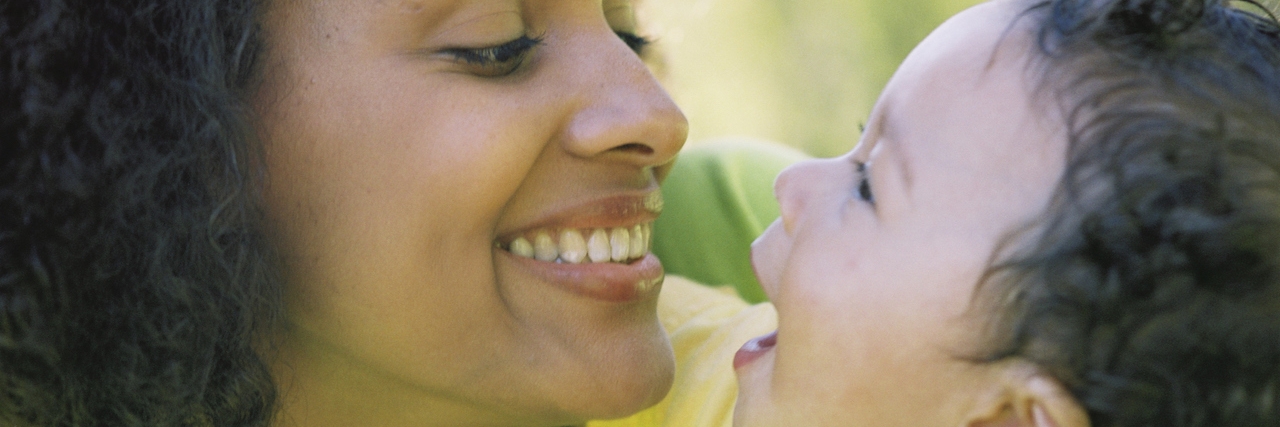I was diagnosed with postpartum depression (PPD) when my daughter was 9 months old, but struggled during the entire first year of her life. Before I sought help and got treatment, I experienced different moods, emotions and thoughts I didn’t understand. Only when I was hospitalized, diagnosed and put on medication did I no longer blame myself for how I had been feeling. My journey with PPD was long, grueling and not something I would wish upon any new mother. My journey with PPD had three parts that changed me, confused me and sadden me to this day.
Part I: Despair
Two weeks after my daughter was born, a deep sadness began to roll through my body. So deep it was like I could feel it in my bones. Nothing gave me joy, and nothing made me happy, not my daughter’s first smile or precious cuddles with her. Happiness seemed unattainable, and the sadness washed over me constantly throughout the day.
I didn’t understand why I was so depressed. I had just gone through an amazing experience of the birth of my daughter, and I felt broken for not experiencing the joy a new mother should experience. I believed she deserved better and deserved a happy mother who would appreciate special moments with her. I believed the sadness would never go away, and I let it swallow me up for the first nine months of my daughter’s life.
Part 2: Rage
When my daughter was 5 months old, I wasn’t feeling sad anymore, but instead there was an emotion much worse and much more dangerous — rage. Everything in my world made me angry, and most of the time it was my daughter who fed my irrational anger. I let the rage come over me every day and rule my mood. I was too tired to fight it and too irrational to realize it was wrong.
Along with rage came hate, which was targeted at my daughter. I felt like I hated her for changing my life, for taking away my sleep and for dissecting my sanity. One day, while I was trying to put my baby down for a nap, she fought and she screamed until I snapped. I yelled at her, at the top of my lungs, to be quiet. She stopped crying for just one second before tears welled up in her eyes and she looked at me with shock and fear. I had scared my daughter, and in that moment, I no longer hated her but hated myself. I finally realized hating my daughter was not right, I didn’t mean it and something was going on inside my head I didn’t understand.
Part 3: Recovery
The moment I snapped was the moment I knew I needed help. I admitted myself to the psychiatric unit of the local hospital, desperate for answers and for someone to tell me I really, truly, was not a bad mother who didn’t love her child. I stayed in the hospital for eight days, where I attended both individual and group therapies, learned a variety of coping skills, was put on medication and was finally diagnosed with PPD.
Admitting myself to the hospital and admitting there was a problem was the first step in my recovery. To this day, I am still taking more steps. To recover from the first two parts of my journey with PPD, I still attend therapy, take my medication and practice the coping skills I learned in the hospital. My recovery means a lot to me because I’m recovering for my daughter. She needs me and needs me to be better so that I can take care of her. I work toward my recovery every day because she deserves a me who is happy, healthy and who loves her.
My journey with PPD and the first two parts of that journey were heartbreaking for me, and still are when I think back on them. However, my recovery keeps me going, and keeps me positive. I do everything I can to find happiness every day because I missed out on it for so long.
I make sure to cherish special moments with my daughter since I missed so many the first nine months of her life. Right now, the most important things in our life are my recovery and her happiness. I am able to attain both through my use of therapy, medication, coping skills and the unwavering love I have for my daughter. I live for the last step of my PPD journey and put the first two parts of that journey where they belong, in the past.

